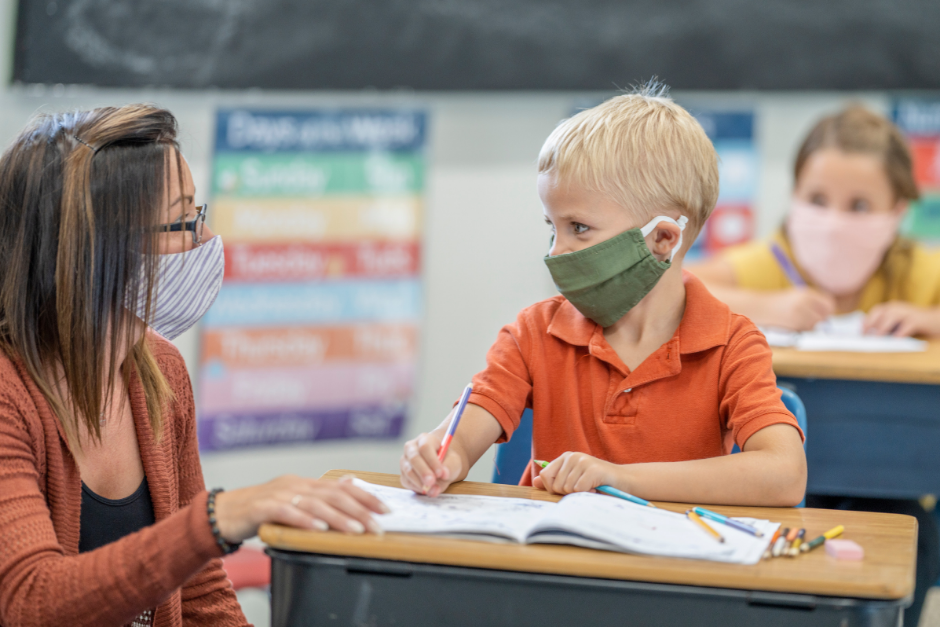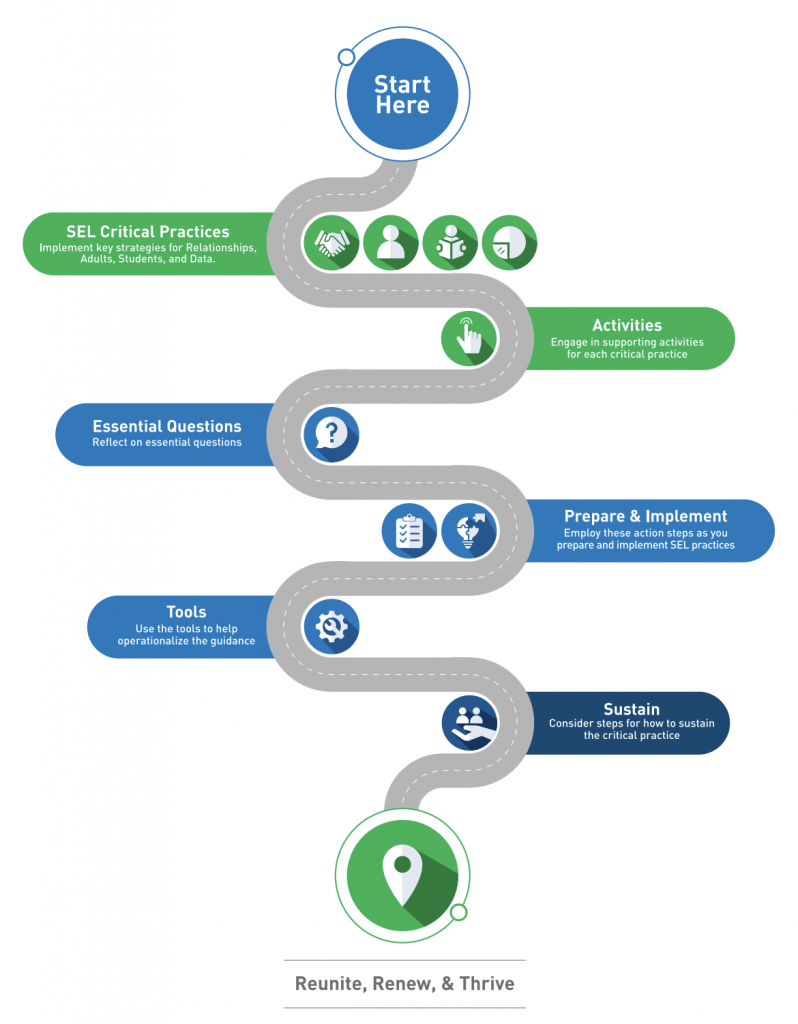Many students around the country have not set foot in a classroom for nearly 18 months. During the pandemic they’ve participated in remote learning, some have had little contact with their peers and most have grown to rely more on screen time to make connections. Because of the coronavirus children have struggled with loneliness and isolation, new fears and loss as well as very different ways of interacting with others.
So it is more important than ever for parents and schools to partner around a child’s social emotional wellbeing and growth this fall. In addition to academics, Social Emotional Learning (SEL) needs to be a priority for schools during the 2021-22 school year.
SEL is the process by which children (and adults) learn to understand and manage their emotions, set goals and make decisions, and engage in positive relationships. Research- and evidence-based SEL programs in schools improve classroom behaviors and attitudes as well as academic performance. These programs also help children build healthier relationships and cope with their feelings in ways that improve well-being. Moreover, SEL can be an effective tool for addressing difficult issues such as racism and inequity in positive and age-appropriate ways.
An SEL Roadmap
Last year, the Collaborative for Academic, Social and Emotional Learning (CASEL), developed an initiative focused on rebuilding thriving schools by prioritizing “safe, supportive, culturally, sustaining and equitable learning environments that promote social and emotional competencies of both students and adults.”
To this end, the organization and more than 40 expert partners developed “Reunite, Renew, and Thrive: Social and Emotional Learning (SEL) Roadmap for Reopening School” as a how-to guide for schools and educators.
4 Critical Practices
The Roadmap covers four critical practices for SEL, and provides a toolbox of resources and activities to inform and enhance these practices.
- Strengthen partnerships and relationships – Schools need to make connections with the broader school community and raise awareness of the importance of social emotional learning. They should make efforts to communicate with those families whose voices have been traditionally overlooked to ensure that their students’ social and emotional needs are addressed. Schools should partner with parents and caregivers to ensure that every child has an adult they can reach out to for support during this difficult time.
- Create opportunities for adult coping and healing – Educators need to be supported so that they have the capacity to help their students cope and heal. Schools should create spaces where adults can come together to process their experiences and ensure that staff and teachers have access to mental health and trauma supports that will help them deal with ongoing stressors.
- Develop safe, supportive and equitable learning environments – Students learn best when they’re taught in unbiased environments where they feel they belong and have opportunities to express themselves. Schools should develop a system of supports and safe spaces for students to discuss their feelings about the pandemic, racial injustice, inequity and other issues they are struggling with. They should also look for ways to create a sense of community through daily check-ins or community-building events and look for opportunities for students to socialize even when physical distancing is necessary. Partnering with mental health professionals can help schools ensure that they are fostering trauma-sensitive learning environments.
- Collect and use data – By collecting qualitative and quantitative data about student, faculty and family experiences, schools can get a sense of what is working and what isn’t. With a clear understanding, schools can make adjustments quickly to address the social and emotional needs of everyone in the community – especially at a time when conditions and circumstances will likely continue to change as the pandemic evolves.
We at Evergreen Psychotherapy Center are ready to partner with families, educators and schools to ensure that the social, emotional and mental health needs of all are being met in positive ways. Contact us at info@evergreenpsychotherapycenter.com to talk about how we can help.



